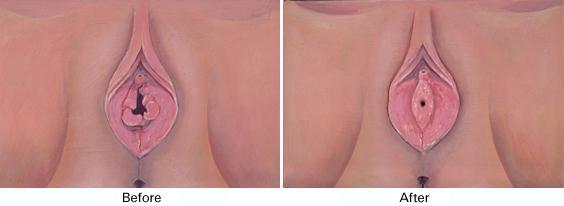Hymenotomy in Pakistan
Search and Compare the Best Clinics and Doctors at the Lowest Prices for Hymenotomy in Pakistan

Find the best clinics for Hymenotomy in Pakistan
No clinics available
United Arab Emirates offers the best prices Worldwide
Price: $ 547

- Home
- Pakistan
WHY US?
At Medijump, we're making medical easy. You can search, compare, discuss, and book your medical all in one place. We open the door to the best medical providers worldwide, saving you time and energy along the way, and it's all for FREE, no hidden fees, and no price markups guaranteed. So what are you waiting for?

Free

Best Price

Widest Selection

Risk-Free
What you need to know about Hymenotomy in Pakistan

Hymenotomy is a surgical procedure to remove or open the hymen – the membrane near the opening of the vagina. It is usually performed on a woman with a septate or imperforate hymen that obstructs the flow of menstruation, as well as an unusually thick or rigid hymen, such as microperforated hymen, which limits access to the vaginal opening, causing pain and discomfort for sexual activities and removing/inserting tampons.
What does a Hymenotomy Procedure Involve?
You will receive general anesthetic before the procedure, but in some cases, a local anesthetic is used instead. Then, your surgeon will create an opening by cutting the membrane of the hymen using special surgical tools. The final step is securing any incisions using small dissolving stitches, which will be absorbed by your body naturally as you heal.
How Long Should I Stay in Pakistan for a Hymenotomy Procedure?
You may be able to leave the hospital on the same day. However, you should plan to stay in Pakistan for 5 to 7 days for initial recovery. Your doctor may also schedule a follow-up hospital checkup to monitor your healing.
What's the Recovery Time for Hymenotomy Procedures in Pakistan?
Most patients feel well enough to return to work and resume their normal activities within a few days, but you may be recommended to rest for 1 week. You should be able to have sexual intercourse after 2 to 4 weeks following a Hymenotomy. It is important to consult with your surgeon as to when you can get back to your full routine, including work and exercises.
What sort of Aftercare is Required for Hymenotomy Procedures in Pakistan?
It is very important to follow the post-operative care instructions that your surgeon gives you to help with your recovery, which usually includes recommended exercise, dietary restriction, and wound care. You also need to keep the genital area dry and clean and avoid inserting anything into your vagina, including a menstrual cup, tampon, or diaphragm at least until you have recovered completely.
What's the Success Rate of Hymenotomy Procedures in Pakistan?
Hymenotomy is very safe, effective, and it has a high success rate. Although risks of side effects and complications are rare, they can occur, which include infection, bleeding, inflammation, scarring, injury to other organs, lingering pain, and scar tissue. Some people may also have complications when they become pregnant and give birth after the procedure, so make sure you consult with your surgeon if you are planning to become pregnant.
Are there Alternatives to Hymenotomy Procedures in Pakistan?
Hymenotomy is currently the only option to treat imperforate, microperforated, and septate hymen. However, if you do not want to undergo surgery, you should discuss with your doctor what your best option will be.
What Should You Expect Before and After the Procedure
Before the surgery, you may be unable to have sex, menstruate, or use a tampon. After a hymenotomy, all of these problems are relieved and you can enjoy them without any pain. You will also be able to have normal menstruation.
Whilst the information presented here has been accurately sourced and verified by a medical professional for its accuracy, it is still advised to consult with your doctor before pursuing a medical treatment at one of the listed medical providers
No Time?
Tell us what you're looking for and we'll reachout to the top clinics all at once
Enquire Now

Popular Procedures in Pakistan
Prices Start From $342

Prices Start From $222

Prices Start From $714

Prices Start From $69

Recommended Medical Centers in Pakistan for procedures similar to Hymenotomy

- Interpreter services
- Translation service
- Religious facilities
- Medical records transfer
- Medical travel insurance
- Health insurance coordination
- TV in the room
- Safe in the room
- Phone in the room
- Private rooms for patients available

- Interpreter services
- Translation service
- Religious facilities
- Medical records transfer
- Medical travel insurance
- Health insurance coordination
- TV in the room
- Safe in the room
- Phone in the room
- Private rooms for patients available

- Interpreter services
- Translation service
- Religious facilities
- Medical records transfer
- Medical travel insurance
- Health insurance coordination
- TV in the room
- Safe in the room
- Phone in the room
- Private rooms for patients available

- Interpreter services
- Translation service
- Religious facilities
- Medical records transfer
- Medical travel insurance
- Health insurance coordination
- TV in the room
- Safe in the room
- Phone in the room
- Private rooms for patients available

- Interpreter services
- Translation service
- Religious facilities
- Medical records transfer
- Medical travel insurance
- Health insurance coordination
- TV in the room
- Safe in the room
- Phone in the room
- Private rooms for patients available

- Interpreter services
- Translation service
- Religious facilities
- Medical records transfer
- Medical travel insurance
- Health insurance coordination
- TV in the room
- Safe in the room
- Phone in the room
- Private rooms for patients available

- Interpreter services
- Translation service
- Religious facilities
- Medical records transfer
- Medical travel insurance
- Health insurance coordination
- TV in the room
- Safe in the room
- Phone in the room
- Private rooms for patients available

- Interpreter services
- Translation service
- Religious facilities
- Medical records transfer
- Medical travel insurance
- Health insurance coordination
- TV in the room
- Safe in the room
- Phone in the room
- Private rooms for patients available

- Interpreter services
- Translation service
- Religious facilities
- Medical records transfer
- Medical travel insurance
- Health insurance coordination
- TV in the room
- Safe in the room
- Phone in the room
- Private rooms for patients available

- Interpreter services
- Translation service
- Religious facilities
- Medical records transfer
- Medical travel insurance
- Health insurance coordination
- TV in the room
- Safe in the room
- Phone in the room
- Private rooms for patients available
Hymenotomy in and around Pakistan
Introduction
The Islamic Republic of Pakistan is a country located in South Asia and it is the fifth-most populous country of the world, with a population exceeding 207.8 million. Although the country has plenty of natural and historical riches, this country is off the radar for most tourists due to political instability. Those who are curious enough to visit the country will find that it is filled with beautiful, from Mughals and mountains to the mighty Karakoram.
A large number of ultra-modern medical centers are available, and they are equipped and facilitated with the most advanced medical technologies. Numerous doctors and surgeons at these medical centers are normally foreign qualified. Large numbers of patients from neighboring countries and the Middle East have traveled to Pakistan to undergo various medical procedures, mainly for organ transplants or fertility treatments.
Popular Cities and Regions in Pakistan
The capital city of Pakistan is Islamabad. This city was built as a planned city to replace Karachi as the country’s capital. Islamabad is known for its safety, high standards of living, and plenty of green spaces. Here, tourists can admire the symmetry of the Pakistan Monument, check out the Daman-e-Koh viewpoint, visit the Lok Virsa Museum, and stroll around the Faisal Mosque. Karachi, the original capital of the country, is a sprawling metropolis. Most visitors usually come to check out the Quaid Mausoleum and the Tuba Mosque. Another popular city for tourism in Lahore, which is filled with beautiful architecture and interesting museums. The most popular attractions in this city are the Badshahi Mosque, the Lahore Fort, the Sheesh Mahal, and the Delhi Gate.
Transport in Pakistan
The busiest airport in Pakistan is the Jinnah International Airport, which is located in Karachi. It serves both domestic and international flights to and from several cities in Europe, Asia, and the Middle East. Taking domestic flights can be a great way to travel around. The rail network is also extensive and comfortable. Taxis and Uber are also available.
Visas in Pakistan
Citizens of 5 countries, including Maldives, Nepal, Samoa, Tonga, and Trinidad and Tobago, can visit Pakistan without a visa. Several countries, such as Austria and the UAE, may obtain a visa on arrival if they possess ETA. Citizens of 15 countries, including Armenia and India, are eligible to apply for an online visa.
Weather in Pakistan
Summer (March – October) is hot and dry in the northern regions. However, July and August can be rainy, making the weather hot and humid. The temperatures can range from 9°C to 38°C. Winter (November – April) can be really severe and most cities will get frost. Also, the northern part of the country experiences heavy rainfall during this season. The average temperature ranges from 3°C to 25°C.
Additional Info
- Local Currency: The official currency is the Pakistani rupee (PKR). 1 USD will get you approx. 154.4 PKR.
- Money & Payments: ATMs are readily available. Pakistan is a cash-based society, and credit cards are only accepted in a few establishments. Tipping is not expected.
- Local Language: The official language is Urdu and English. Punjabi, Pashto, Sindhi, Saraiki, and Balochi are also spoken by a number of people.
- Local Culture and Religion: Islam is practiced by more than 90% of the population. Hinduism, Christianity, Ahmadis, Sikhism, and other religions are also practiced. Always avoid wearing body-revealing clothes in public places.
- Public holidays: Some of the most celebrated holidays are Holi, Pakistan Day, Eid ul-Fitr, and Eid ul-Azha.
Popular Searches
- Plastic Surgery in Thailand
- Dental Implants in Thailand
- Hair Transplant in Thailand
- Breast Augmentation Thailand
- Gastric Sleeve in Thailand
- Gender Reassignment Surgery in Thailand
- Laser Hair Removal in Bangkok
- Botox in Bangkok
- Dermatology in Bangkok
- Breast Augmentation in Bangkok
- Coolsculpting in Bangkok
- Veneers in Turkey
- Hair Transplant in Turkey
- Rhinoplasty in Turkey
- Stem Cell Therapy in Mexico
- Rhinoplasty in Mexico
- Liposuction in Mexico
- Coolsculpting in Tijuana
- Rhinoplasty in Korea
- Scar Removal in Korea
- Gastric Sleeve in Turkey
- Bone Marrow Transplant in India
- Invisalign in Malaysia
- Plastic Surgery in the Dominican Republic
- Tummy Tuck in the Dominican Republic
- Plastic and Cosmetic Surgery in Poland
- Rhinoplasty in Poland
- Hair Implant in Poland
- Dental Implants in Poland
- IVF in Turkey